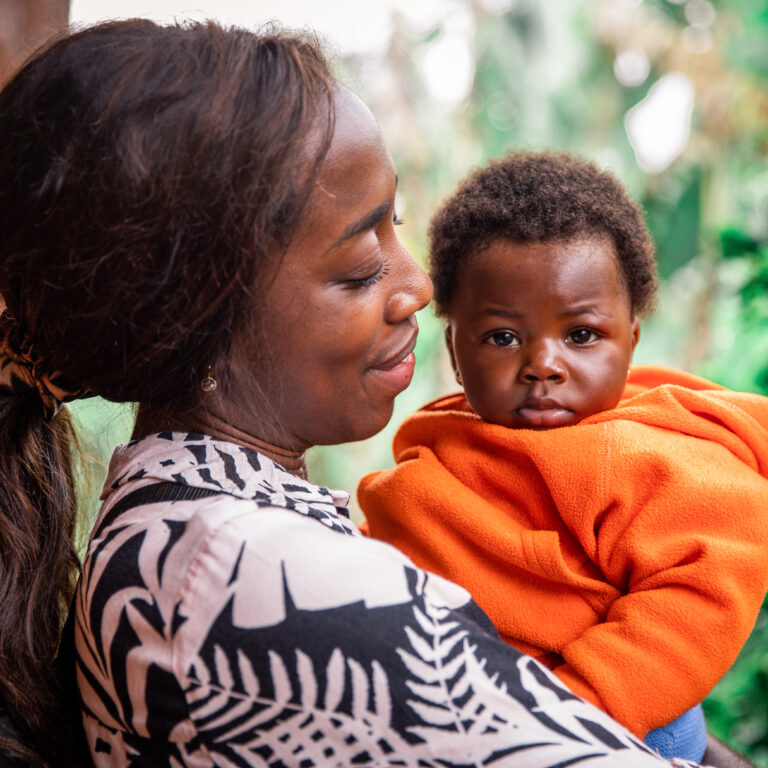Sign up for story alerts, deals, news and insights from us.
Impacter Solutions is a consulting social enterprise committed to being the leading partner to African governments, donors, and partners and driving results to accelerate progress in maternal, child, and adolescent nutrition and food security indices through policy optimization, robust data-driven and AI-powered insights, multi-sectoral and multistakeholder collaboration, and gender-responsive approaches to nutrition and food systems transformation programs.

Impacter Solutions was founded in 2024 to fill a need for the private sector to contribute and accelerate progress towards addressing malnutrition and food security challenges in Africa.
With its headquarters in Abuja, Nigeria, Impacter Solutions operates a social impact-driven business model, focusing more on creating impact. We operate with a lean and agile consulting approach and assemble tailor-made teams of experienced experts on a project-by-project basis.
Our strength lies in our network of experts. This model allows us to quickly adapt to our clients’ needs, tackle each project’s unique challenges, and work directly and collaboratively with our clients to deliver the best value for money.

Our experts are hand-picked based on a track record of experience working as subject matter experts in the field and demonstrating results. They are local experts who understand local contexts around our projects, bringing hands-on technical expertise and skills with fresh perspectives to each project.
We bring decades of demonstrable experience in policy review and development, regulatory landscape analyses, multi-stakeholder engagement and coordination, strategic advisory, socio-economic impact assessments, gender in nutrition and food systems transformative approaches, and data-driven, AI-powered insights.

The Africa Regional Overview on Food Security and Nutrition (2023) shows that Africa remains off-track to meet the Malabo targets of ending malnutrition by 2025 and food security and nutrition targets of the Sustainable Development Goals (SDG 2) by 2030. Over 280 million people (about 20% of the population) are undernourished. In West Africa, for example, the prevalence of undernourishment continues to steadily rise, from 10.6% in 2014 to 14.6% in 2022 and severe food insecurity from 11.4% in 2015 to 22.0% in 2022. Sadly, more people are at risk due to the interplay of factors, including global conflicts affecting food prices, climate change and its impact on food production and nutrition, and the post-Covid-19 effects, from which countries have not fully recovered.
Addressing the complex interplay of factors driving poor outcomes in maternal, child, and adolescent nutrition and food insecurity in Africa is crucial. From weak governance and policy implementation challenges to incomplete and poor-quality data, gender inequalities in food and nutrition, and financing gaps, these setbacks necessitate African countries to step up efforts to reduce hunger and malnutrition and achieve the Sustainable Development Goals by 2030.

The role of private and social enterprise companies and organizations in tackling food security and nutrition challenges has been fully explored and their positive impact documented. From technical expertise, innovative technologies, data-driven solutions to transformative food systems, the private sector is a key player in accelerating progress towards tackling malnutrition and food insecurity.
Impacter Solutions was founded out of the burning desire to contribute to changing this narrative. We believe that the solution to Africa’s challenges of malnutrition and food insecurity lies in the hands of local technical expertise, using evidence-based, innovative, contexual approaches. African countries can change the current narrative to better outcomes. It is not just a possibility; it is a responsibility.
To be the leading private social enterprise that uses local solutions to accelerate improvement in nutrition and food security outcomes in Africa.
To use local technical expertise to provide innovative local solutions, strategies, and data-driven insights that improve nutrition and food security outcomes, strengthen health and food systems in Africa.
We are responsive to client's needs, and we deliver exceptional service with tailored solutions that inspire confidence, drive change, and make lasting impact.








Our solutions are grounded in a comprehensive needs assessment before project design and execution. We use evidence-based methodologies and tools to analyze a program or landscape. The results of the analyses guide us to design targeted, cost-effective, and sustainable solutions for our clients.
Our services are delivered through four business divisions:
We provide consulting on policy and strategy for food and nutrition programs and gender-responsive approaches for nutrition and food security. We specialize in policy and implementation strategy development, baseline, midterm, and impact assessments, and policy and regulatory landscape analyses.
We develop & maintain food and nutrition policy dashboards, AI interactive and predictive models, and blockchain fund tracking systems and provide real-time data insights for governments & donors.
We strengthen local expertise for the sustainability of food and nutrition programs. We conduct onsite and virtual trainings, workshops, and webinars. We also design and deliver tailored onsite and online courses that meet clients' needs. Our experts are open to serving as event keynote speakers, moderators, panelists, and facilitators.
We conduct food and nutrition assessments, market research, and custom research for donors, governments, and agribusinesses.

When you work with Impacter Solutions, you won’t be bothered about the bureaucratic structures of the big consulting companies. We are lean, adaptable, and able to deliver high-impact solutions faster and more efficiently. Our multi-sector expertise in public health, socio-economics, and fiscal impact assessments enables us to optimize resource allocation, enhance policy execution, and drive multi-sectoral collaboration.
We have the local knowledge and experience in navigating food and nutrition systems, regulatory landscapes, and donor priorities.
We bring:
Local Expert-Led Policy and Strategy Advisory Services: Our team brings decades of on-the-ground, local experience in nutrition, food security, and public health policy and strategy, leveraging local knowledge of government systems, policies, regulations, and other contexts.
Specialized Consulting & Tailored Approaches: Unlike generalist consulting firms, we are laser-focused on food security, food and nutrition policy, and gender mainstreaming. We offer deep and highly focused expertise and ensure value for money. We customize every engagement to meet our client’s needs and priorities.
Data-Driven, Decision-Making Solutions: Traditional consulting companies focus on data analysis; we go beyond analysis. We integrate AI-powered predictive analytics and real-time data tracking to ensure evidence-driven policy development and investments based on real data and predictive assumptions that lead to positive change and measurable impact.
Holistic & Scalable Approaches: Our approaches to all food and nutrition projects ensure we include the voices of underserved populations in policy formulation, program implementation, resource allocation, and impact assessment. We also focus on feasible and viable local solutions that are scalable and sustainable.
Governments at national and subnational levels often struggle with weak policy execution, ineffective resource allocation, and a lack of real-time data to guide decision-making. Additionally, there is fragmented coordination between ministries, which reduces the impact of nutrition and food security programs.
Many governments also face gender gaps in food systems policies that prevent equitable food and nutrition outcomes.
Impacter Solutions helps governments to address these challenges by providing AI-powered policy optimization to ensure policies are evidence-based with clear strategies based on previous resource allocation and implementation data and socio-economic impact assessments. We also offer real-time monitoring tools to track and adjust programs during policy implementation.
Our gender-inclusive insights guide policy formulation that is gender-responsive, ensuring that policies benefit women, girls, and other marginalized populations.
Donors and development financing institutions face challenges with tracking transparency and accountability of funds for high-impact food and nutrition programs. They need data-driven solutions that track and maximize their return on investment and ensure that resources achieve sustainable, measurable, and impactful results.
With Impacter Solutions, donors benefit from AI-powered socio-economic impact assessments that help prioritize the most cost-effective interventions. Our predictive analytics allow for proactive and better funding decisions, ensuring that resources are appropriately allocated and used optimally.
We also provide real-time tracking for transparency in fund allocation while offering evidence-based policy and strategy advisory that aligns donor priorities with the specific needs of governments of target countries.
Implementing partners often struggle with limited access to high-quality data, which affects their ability to design, execute, and scale nutrition and food security programs. They also face challenges in coordinating with other stakeholders, leading to duplication of efforts.
By partnering with Impacter Solutions, implementing partners benefit from our AI-powered program design and evaluation tools that enhance scalability and effectiveness. Our data analytics and impact measurement systems enable them to execute programs based on evidence, ensuring they deliver measurable results.
We also have demonstrable experience in multi-stakeholder collaboration within the food and nutrition sectors that fosters engagement and coordination of stakeholders to maximize program impact and reduce inefficiencies.
Additionally, our behavior change communication strategies help ensure program adoption and long-term success in improving nutrition outcomes.

